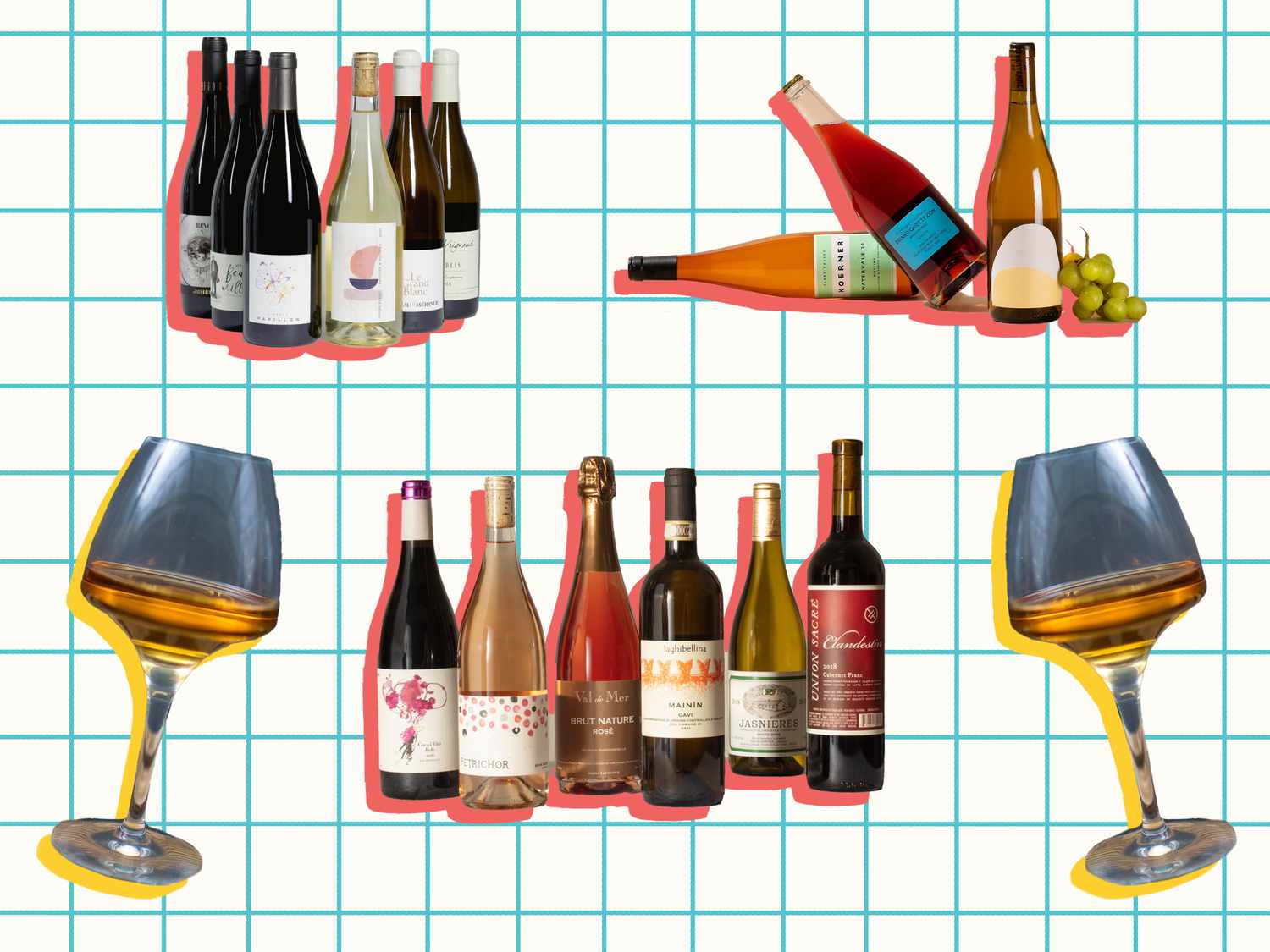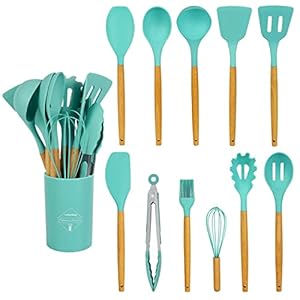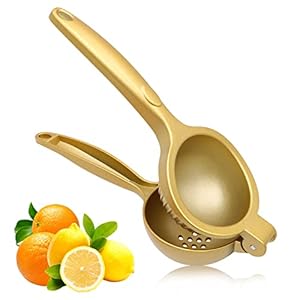
Straight to the Level
Though “pure wine” is just not an industry-regulated time period, it’s typically agreed that it’s made with spontaneous fermentation and pure yeasts—that’s why it’s additionally known as low-intervention wine. The winery, bottling, and delivery practices issue into the equation, too. Should you’re on the lookout for an approachable pure wine membership, we advocate MYSA’s Mixed Natural Wine Club.
Pure wine or “natty wine,” as the children are calling it nowadays, could also be trending, nevertheless it’s not a flash within the pan. The time period pure wine refers to a set of winemaking practices and methods. In quest of what actually defines this style, we spoke with Holly Berrigan, a sommelier and the founding father of MYSA Natural Wine, about the best way to outline (and store for) pure wine. Whereas shoppers might battle to grasp what makes a bottle pure or not—the wine {industry} is just not recognized for readability in labeling and branding—there are a handful of key indicators to search for when shopping for and ingesting nice pure wine. And shock: None of them embody the phrase “funky.”
What Is Pure Wine?
There are many {industry} phrases used to explain pure wine. Should you’ve just lately bought eggs in a grocery retailer, you’ll perceive this idea: Some cartons are labeled natural, some free-range, and others, merely, “all pure.” The pure wine {industry} operates equally. Right here’s a breakdown of three widespread phrases:
Natural Wine
This is a definitive label. A winemaker should be licensed as natural to make use of the terminology to market their wine. However organically grown wine grapes are solely part of the winemaking equation: “Natural” refers to what occurs within the winery and nothing extra. Spraying for pests is regulated and restricted, though some preventative therapies are nonetheless allowed below the natural label. “Round 10% of vineyards,” Berrigan says, “are licensed natural.”
Biodynamic Wine
One other vineyard-specific label, biodynamic agriculture entails a fancy set of agricultural practices, timetables, and rituals based mostly round an idea of common connectedness. Sounds a little bit woo-woo? That’s truthful. However biodynamic grape-growing is extra than simply farming by vibes. Biodynamic farmers sometimes meet and exceed natural requirements, working with the understanding that each selection made has a ripple impact on the well being of soil, crops, and, lastly, private well being.
Pure Wine
Critical Eats / Russell Kilgore
Simply because a wine is natural or biodynamic doesn’t imply it’s pure. “For pure wine, or low-intervention wine, we’re speaking about what occurs contained in the vineyard itself,” Berrigan says. She notes spontaneous fermentation and pure yeast as two vastly essential parts required for pure wine. “In typical winemaking, the fermentation course of is pressured utilizing a selective yeast. In pure wine, native yeast is used—that’s the yeast that’s ambient within the air round us.”
Why would a winemaker select pure yeast over a extra secure, predictable product? “It’s extra fascinating,” Berrigan explains. She provides grapes grown in Martha’s Winery, Massachusetts, as a first-rate instance: The ensuing wines are likely to have a minty, menthol-forward character, which is reflective of the eucalyptus bushes surrounding many vineyards. There’s additionally better variation from 12 months to 12 months in pure winemaking, which some shoppers choose. After all, the parallel is true. Says Berrigan, “A traditional wine will style the identical each single time you drink it as a result of they’re making it style like that.” Wine drinkers preferring predictability are likely to gravitate towards typical wines. Now that we’ve outlined among the key terminology, it’s time to speak about one of the misunderstood—and controversial—components in winemaking.
Are Sulfites In Wine Unhealthy?
Point out the phrase “sulfites” inside a 50-mile radius of a pure winemaker or {industry} skilled, and also you’ll hear their groans…however most likely not for the rationale you count on. Many drinkers select pure wines due to the parable that they don’t comprise headache- and hangover-inducing sulfites. “Is it the sulfites in your wine making you are feeling bizarre, or is the meals dye?” asks a bemused Berrigan. Extra on the dye state of affairs within the subsequent part, however for now, let’s speak about what sulfites do—and why they’re often needed in wine.
First: All wine incorporates sulfites. Some happen naturally. It’s legally permissible to to market a wine as having no added sulfites, however added sulfites aren’t all the time a nasty factor! There are two locations within the winemaking course of the place sulfur will be launched. First, grapes could also be sprayed with sulfur—a permissible follow, even throughout the natural {industry}. Second, and maybe extra controversially, sulfur will be added through the winemaking course of. “Somewhat little bit of sulfur is de facto helpful to make sure that the wine doesn’t flip and go unhealthy throughout fermentation,” says Berrigan. In the US, 350 elements per million of sulfur are allowed, however that focus is often solely seen in typical wines. A lot of the pure wines MYSA presents clock in at a modest 50-and-under ppm. The tradeoff for a contact of stabilizing sulfites, Berrigan says, is value it. “I’d slightly have 35 elements per million sulfur in my wine than have a bottle that’s mousy [tasting] and unhappy.”
Are There Components In Pure Wine?
Maybe the extra telling query is: Are there components in typical wine? The reply—regardless of not current on most typical wine labels—is a convincing sure. Standard winemakers have quite a lot of components of their toolboxes.
Fining and Filtering Components In Wine
After wine has fermented, it’ll look cloudy and should have sediment within the bottle. Standard winemakers filter out the bigger particles after which use components to “nice” the wine, making it crystal-clear. A few of these fining agents, Berrigan notes, will be stunning to shoppers: She cites fish bladders, egg whites, and milk as generally used tips of the commerce. “It is a good time to notice that not all wine is vegan,” she says. The wrongdoer is often fining brokers. In contrast, pure wine is commonly unfiltered, which leads to bottles with sediment and cloudiness (these qualities will not be thought-about flaws in wine, though shoppers used to filtered wine might discover them off-putting.)
Sugar In Wine
To know why typical winemakers would put sugar in wine—and lots of do—consider a superbly balanced wine as an X form. One line represents acidity; the opposite, sugar. The best intersection of the 2 is the precise center of the X. However quite a bit can go fallacious through the winemaking course of, and the wine you find yourself with will virtually all the time be off the bullseye. If the wine is just too acidic, typical winemakers might choose so as to add sugar. If the wine has an excessive amount of residual sugar (and consequently, a better ABV), acidifying brokers like citric acid will be launched to the combo. It’s typically accepted that pure winemakers don’t use any sugars or acidifiers, even within the case of an imperfectly balanced wine.
Dyes In Wine
Critical Eats / Russell Kilgore
Meals dye is a permissible additive in typical wine, though producers are detest to confess it. It’s used to spice up the saturation of wine earlier than bottling, particularly if the grapes had been unhealthy and the ensuing colour weak. The most typical coloring agent known as Mega Purple which is, funnily sufficient, extremely concentrated grape juice. “Should you’re getting bizarre colours in your mouth whenever you drink, typically it’s from the grapes. However loads of the time, it’s from meals dye,” says Berrigan. Pure winemakers don’t use dyes.
What Does Pure Wine Style Like?
We’ve talked quite a bit about what pure wine isn’t. However what’s it? And what does it style like? Berrigan and lots of {industry} execs steer away from the phrase “funky,” even when it’s a helpful catchall time period for describing a wildly diversified style. (Berrigan does fee the wines bought at MYSA on a funkiness scale, as a result of it’s an environment friendly technique to determine how a-typical a given wine is. She notes that an journey scale could be equally informative.) The factor is, any wine will be funky whether it is improperly made.
Critical Eats / Russell Kilgore
The alarming, what IS that? retronasal expertise Berrigan describes as “mousey” is a flaw—and never a desired high quality in pure wine. “I fear that when folks say they like pure wine, they’ve really discovered to love that taste and are on the lookout for it,” she says. That’s a compelling argument towards utilizing “funky” or “bizarre” to explain pure wine! As an alternative, understanding the widespread qualities of pure wine gives you a greater vocabulary to explain what you want and don’t like ingesting. Listed below are some methods to explain pure wine.
Unstable Acidity
Unstable acidity brings a vinegary be aware to wine. Somewhat could make a wine zippy, shiny, and fascinating—suppose aged balsamic vinegar. But when a pure wine has ever reminded you of nail polish remover, you’ve had the unlucky expertise of uncorking a bottle with an excessive amount of VA.
Oxidation
Managed publicity to oxygen will introduce complicated, nuanced qualities to a wine. An excessive amount of will pummel its flavors, aroma, and hue. How will you inform if a wine is too oxidized? Berrigan presents a easy query: “Does it have a stunning sherried be aware or does it style like nasty socks?”
Discount
On the flip aspect, a reductive wine has been disadvantaged of oxygen. Retaining oxygen below management provides the wine growing old energy and retains oxidation in verify. However too little oxygen will introduce a sulfurous, skunky, or smoky taste that may be off-putting to some. Berrigan notes that she steers away from reductive wines—however should you’re into a little bit smoke, it’s a phrase you’ll need to convey to your subsequent wine-shopping mission.
Liveliness
Pure wine is alive—like kombucha and sauerkraut. For that cause, many have a flippantly effervescent, fizzy high quality, even when they’re not marketed as glowing. Some surprising bubbles are enjoyable, however a historically nonetheless wine that knocks you over with fizz misses the mark.
Brettanomyces
Brettanomyces, or brett, is a yeast that brings a horsey taste to the celebration. It’s generally present in beer, however isn’t shy about hanging round pure wines, too. An excessive amount of Brett smells like a barnyard, however a little bit will be fascinating. “It provides a layer of complexity to wine past the first aromas (main is from the fruit, secondary is from the winemaking, tertiary is from growing old),” says Berrigan.
The place to Purchase Pure Wine On-line
Wine outlets that function pure, low-intervention bottles are more and more widespread. Some deal solely in pure wines. Should you reside close to one, one of the best ways to strive pure wines and get to know your palate is to speak to the salespeople or service provider. Nevertheless, as a result of we reside within the age of the web, becoming a member of a pure wine membership (or any type of food subscription club) is as simple as clicking a number of buttons.
Listed below are a number of wine clubs we like, because of extremely curated collections, approachable instructional supplies, and the power to customise your subscription.
MYSA is Berrigan’s wine membership. It’s a reasonably priced possibility that provides an incredible selection and comes with loads of intel on every bottle. “I really like how every cargo of Mysa comes with alternatives to study,” senior commerce editor Riddley Gemperlein-Schirm says. “There is a card with a QR code you scan and that takes you to their web site the place you may find out about every bottle, uncover pairing concepts, and watch video tastings alongside Holly. The wines are all so thoughtfully curated and I’ve beloved every bottle I’ve tried.”
Key Specs
- Kind of wine included: Purple, white, rosé, orange, and glowing
- Variety of bottles included: 3, 6, or 12
- Frequency of supply: Month-to-month, each 2 months, or each 3 months
Critical Eats / Riddley Gemperlein-Schirm
A subscription to Uncooked Wine’s membership comes with tons of instructional supplies; we really named it the most effective information-rich pure wine membership. You possibly can go for temperature-controlled delivery (nice in the summertime months), and the membership comes with entry to Uncooked Wine’s common in-person events. Berrigan cites this as an outstanding possibility for critical pure wine drinkers, particularly those that search for distinctive, thought-provoking wines.
Key Specs
- Kind of wine included: Purple, white, rosé, orange, candy, and glowing
- Variety of bottles included: 3, 6, or 12
- Frequency of supply: Month-to-month
Critical Eats / Jesse Raub
A “dry” farm doesn’t irrigate. This presents loads of challenges to grape rising, particularly in locations susceptible to drought. However it’s higher for the atmosphere and will be an effective way for grape growers and winemakers to indicate their expertise. Dry Farm Wines shipments include instructional supplies concerning the wines, and the shipments are packaged fantastically. Additionally they provide a low alcohol collection excellent for drinkers who need to maintain ABV in verify.
Key Specs
- Kind of wine included: Select between a mixture of pink/white, pink, white, rosé, and glowing
- Variety of bottles included: 6 or 12
- Frequency of supply: Month-to-month or each 2 months
Critical Eats / Rochelle Bilow
Plonk presents completely wines created from organically- or biodynamically- grown grapes and infrequently options lesser-known varietals. Though this isn’t technically a pure wine membership, the choices favor low-intervention winemaking methods. Every cargo comes with a concise informational pamphlet that’s simple to digest, and by no means overwhelming.
Key Specs
- Kind of wine included: Purple, white, rosé, and bubbly
- Variety of bottles included: 4, 6, or 12
- Frequency of supply: Month-to-month, each 2 months, or each 3 months
Critical Eats / Grace Kelly
FAQs
Is pure wine higher for you?
Owing to the absence of components and sometimes decrease ABV, some drinkers really feel pure wine is a more healthy possibility. However like all alcoholic drinks, pure wine must be drunk moderately—it’s not a well being meals.
What are sulfites in wine?
Sulfites are preservatives and are naturally-occurring and added. The presence of sulfites in wine provides it extra stability and protects it towards flaws that happen within the fermentation course of. Standard wine within the U.S. permits 350 elements per million sulfites in wine; though there’s no authorized restrict in pure wine, most producers attempt to maintain it below 50 ppm.
Are you able to age pure wine?
It’s a typical false impression that all-natural wine must be consumed ASAP. Some varietals, like Beaujolais Noveau, are supposed to be loved younger (and sometimes sell out as quickly as they’re accessible annually). However as a result of pure wine encompasses as many varieties of wine as there are grapes, loads of low-intervention bottles will be tucked away for safekeeping.
What’s orange wine?
Not all orange wine is pure, however many pure wines are orange! Orange wine is made by fermenting white grapes with their skins; that’s why it’s additionally known as “pores and skin contact” wine. This not solely provides the wine its signature colour but additionally imparts a reasonable quantity of tannins, which assist defend the wine towards impurities. Berrigan notes that pores and skin contact is nearly all the time by pure winemakers who make white wines. “If you can also make a white wine with none components or pores and skin contact, you’re the most badass winemaker on this planet,” she says.
Why We’re the Specialists
- Rochelle Bilow is a commerce editor at Critical Eats.
- She is a graduate of the French Culinary Institute, and has labored as a meals author for over a decade.
- She has additionally hung out working in advertising for the Finger Lakes Wine area.
- For this story, she interviewed a sommelier with an experience in pure wines.
Trending Merchandise

:max_bytes(150000):strip_icc()/raw-wine-club-36ae9321320c4d4287011325ff328421.jpg)
:max_bytes(150000):strip_icc()/dry-farm-wines-classic-membership-1b6b4d8ec5c849039e44d00a871cdf71.jpg)
:max_bytes(150000):strip_icc()/plonk-wine-club-5f0c66f7f0ff48db982fb1673d8eec04.jpg)









